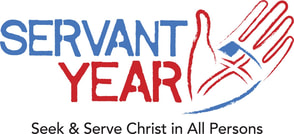|
By Virginia Wilhoff
I work as a case manager with Bethesda Project, an organization which strives to be family to those who have none, namely the homeless of Philadelphia. To be more specific, I work at Bainbridge, a supportive housing facility for formerly homeless men who have a mental health diagnosis and/or have experienced addiction. Each man has his own room and is provided support through medication monitoring, case management, and a staff member present at the house at all times. Some of the men may eventually move out while others might stay there indefinitely. In either case, Bainbridge provides the men a stable home where they can grow and thrive. All of the cases on my caseload are unique because all of the men are unique individuals. Case work is largely about building relationships and that can only be done if you treat each case as a separate person. Vulnerable populations may have many things in common. Those who have experienced mental illness or addiction may face similar obstacles. Studies are helpful because they provide insight on the macro level into what these groups of people face in the city every day. Yet, when someone is standing in front of you, he is Joe Smith and not just a number in a study. Even if much of my time is spent looking up benefits, making phone calls regarding housing, trying to figure out what insurance does and does not pay for, a key part of my time is learning about a resident's favourite food, the significant relationships in his life, or something he is proud of from his past. In order for me to help the residents with anything, I have to know them first as individuals. Through the relationships I am building, I am doing ministry. Though I am not there to spread God's Word through actual words, presence is a form of ministry. Many of the people at Bethesda have complicated and sometimes non-existent relationships with family members. Sometimes, this situation, though not ideal, is for the best; at other times, it can be very sad for the individual. In both cases, though, it means that they do not have the support systems in place to help them through tough times. Dealing with frustrating governmental systems, their own mental health crises, or frightening medical diagnoses can be difficult to face alone. When residents stand beside each other and when staff stand beside residents through these tough moments, we are all allowing God's light to shine through us onto others. It is not all doom and gloom, though. Being family to those who have none is also about enjoying life together. When the residents joke with staff or when they play bingo with volunteers, we enjoy each other's company and the time we are spending together. Recently, we celebrated birthdays at Bainbridge, and we were truly sharing in God's joy at the existence of these individuals. Through my work as a case manager, I have learned what the ministry of presence means, and I am thoroughly enjoying it. Ginny's ministry placement is as a Case Manager at Bethesda Project.
0 Comments
Leave a Reply. |
Class of
|

 RSS Feed
RSS Feed
